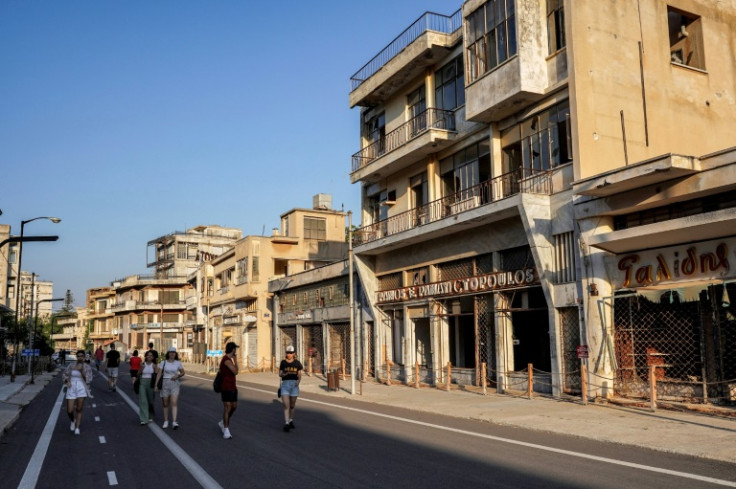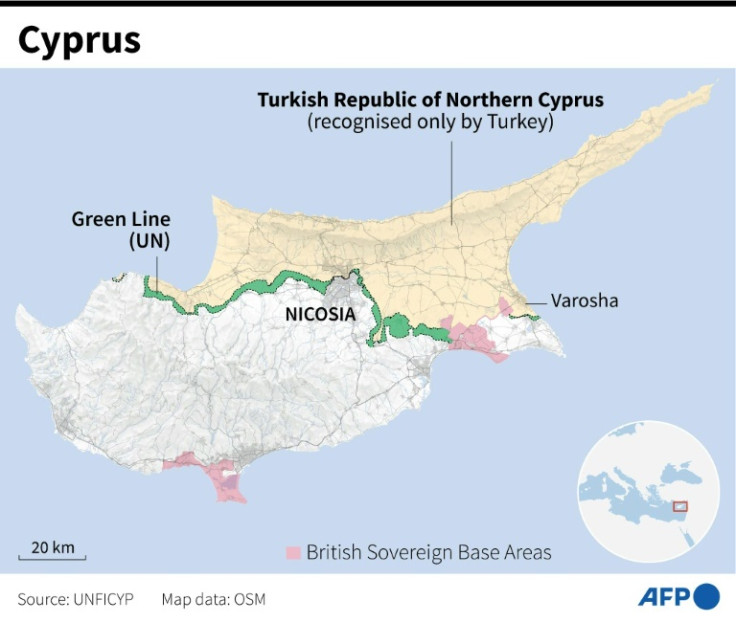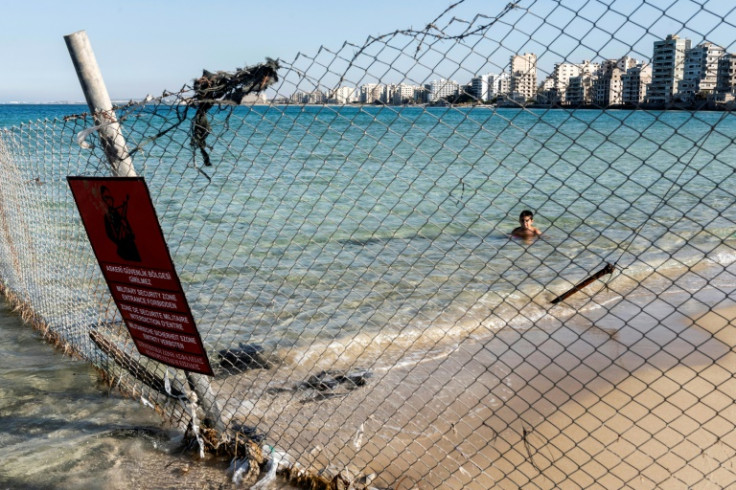
Once Cyprus's premier beach resort, the abandoned hotels and villas of Varosha stand testament to dashed hopes of reclaiming lost property after five decades of division and failed diplomacy.
Situated in the seaside district of Famagusta, it was among the last parts of the Mediterranean island's north to be occupied by Turkey during its 1974 invasion triggered by a Greek-sponsored coup.
Fearing the advancing Turkish forces, the roughly 45,000 Greek Cypriot residents of Varosha -- where Hollywood star Sophia Loren once owned a home too -- fled, and the area was never resettled.
Instead, frozen in time, the neighbourhood was fenced off for use as a bargaining chip in eventual peace talks between the Turkish Cypriot and Greek Cypriot communities.
Successive UN-backed peace plans would have allowed Varosha's residents to return to their properties under Greek Cypriot administration, but failed to satisfy other demands.
The last round of UN-backed talks collapsed in 2017.
Then, in October 2020, with both Turkey and the Turkish Cypriots declaring the UN-backed process dead, the army announced it was opening up part of the fenced zone to day trips.
A resurfaced main street behind the crumbing beachfront has allowed Cypriots and tourists alike to tour the fading 1970s time capsule preserved in the city's streets.
Nicolas Karageorgis was among the Greek Cypriot former residents who flocked to Varosha in hope of a glimpse of their childhood homes.
Ropes blocked off the access road which was covered in weeds, leaving him unable to see the house.
A signpost nearby warned sightseers not to go near the ruined buildings.
"The house is empty but full of memories," said Karageorgis.
Like many displaced from Varosha, the retired engineer has submitted a request to the Immovable Property Commission, a controversial body set up by the breakaway Turkish Cypriot administration to oversee Greek Cypriot property in the north.
"We had the choice to seek compensation or restitution. I chose restitution," he said.
Other Greek Cypriots, despairing of the prospects of ever recovering their properties as part of a UN-backed deal, have chosen compensation, leaving the Turkish Cypriots to claim ownership of several of the district's hotels.
Greek Cypriot law firms say that many owners are still waiting for compensation under the controversial scheme, which has created a roaring grey market in abandoned properties with Turkish Cypriot-issued title deeds.
Even where "judgements have been handed down... Turkey refuses to pay", said lawyer Achilleas Demetriades.
Since the 1974 war, Cyprus has remained divided between the internationally recognised Republic of Cyprus, which controls the Greek-speaking southern two-thirds of the island, and a northern Turkish-speaking statelet recognised only by Ankara.
For Turkish Cypriots, who still want to see the island reunified, the reopening of Varosha, even partially to day-trippers, is a first step.
"We would like to see the revival of Varosha, of course with the former inhabitants," said Serdar Atai, 57.
But for many Greek Cypriots, the dispute is not just about property.
"For sure the properties is an important issue," said Simos Ioannou, the mayor of Famagusta who is based in the south.
"However, we didn't leave there only our properties, but our soul."











